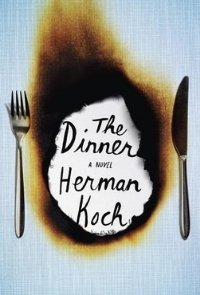
The Dinner
Written by: Herman Koch
Reviewed by: Joe Bones
Genre: Thriller
Score: 4.5/5
“Each unhappy family is unhappy in its own way.” — from Anna Karenina
It never ceases to amaze me how a person can be completely unfamiliar with a famous author, until by pure happenstance, they stumble upon one of that author’s novels; I consider myself lucky to have stumbled upon Herman Koch’s The Dinner.
Originally written in Dutch, and since translated into over twenty-one languages, this novel masterfully tells the tale of two families, and the secrets that come to light as they sit down to dinner at a fancy restaurant. The writing is at times very humorous and at other times serious, but always enthralling. Koch’s prose reminded me a little of Camus’s The Stranger, though this novel isn’t a study of existentialism. Instead, the story is very much character driven. Very little actually happens at the titular dinner aside from conversation. The true events of the story unfold through the asides and flashbacks presented to us by the main character. These details are woven together with dry wit and clever social observations to produce a smooth narrative.
The fluidity of the narrative draws the reader into a state of passivity. Yet just as the narrative seems to have lost its former pacing, the story takes dark and satisfying twists and turns. The lull in the narrative serves to make the twists that much more jarring to the reader. The first half of the novel, which might seem a little dry at first, is put into a completely new perspective by the events portrayed in the second half. As the truth is brought forth, the dinner the two couples find themselves at takes on a new connotation. The suspense is subtle, until you reach the climax and realize exactly what the story has been building up to the entire time, making for a satisfying read and a surprising conclusion.
The Dinner will either grab your attention immediately, or you will struggle to connect with the narrative. For those who fall into the latter category, do your best to stick it out. The ending validates the slow pacing in the middle.
Recent Comments